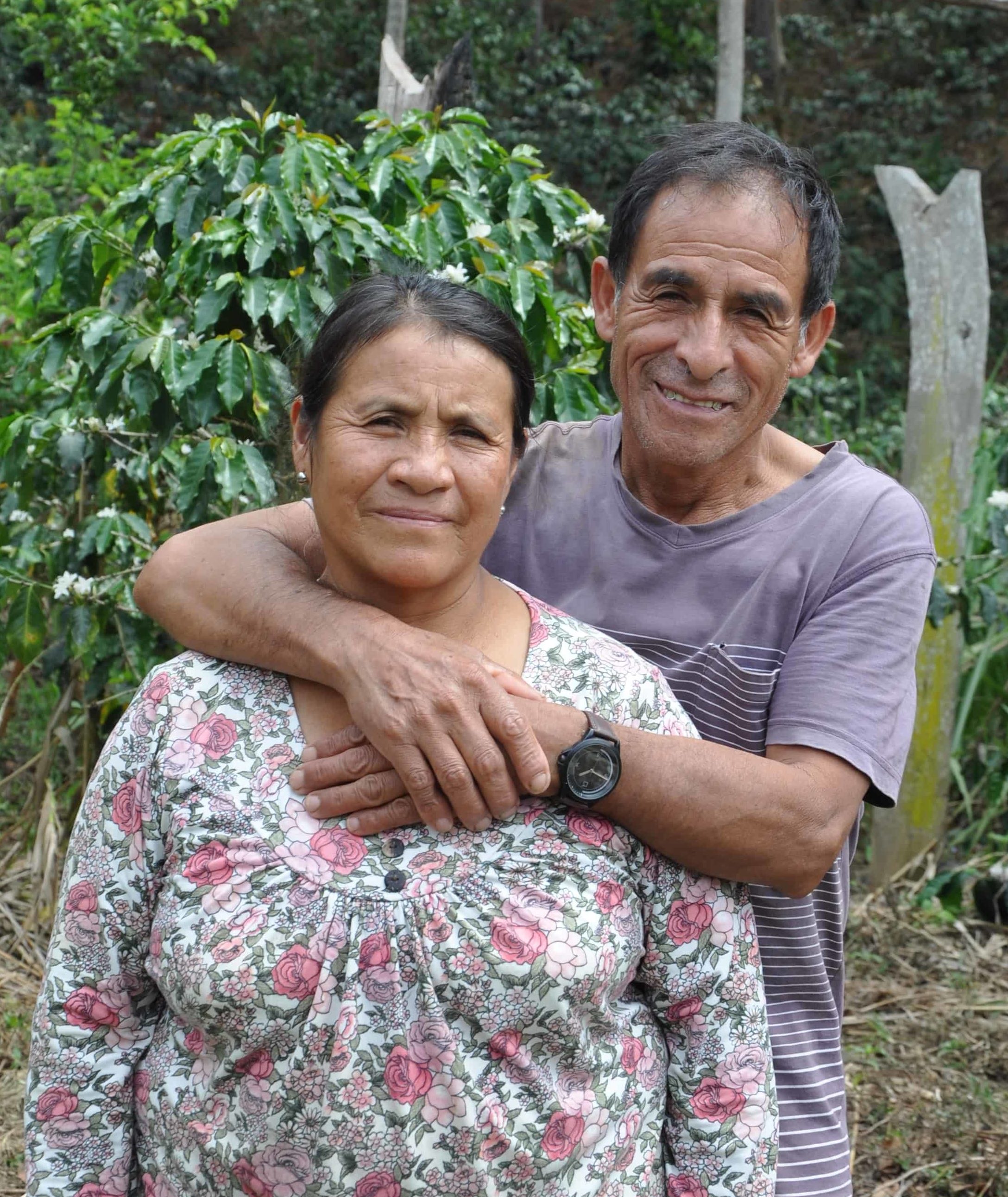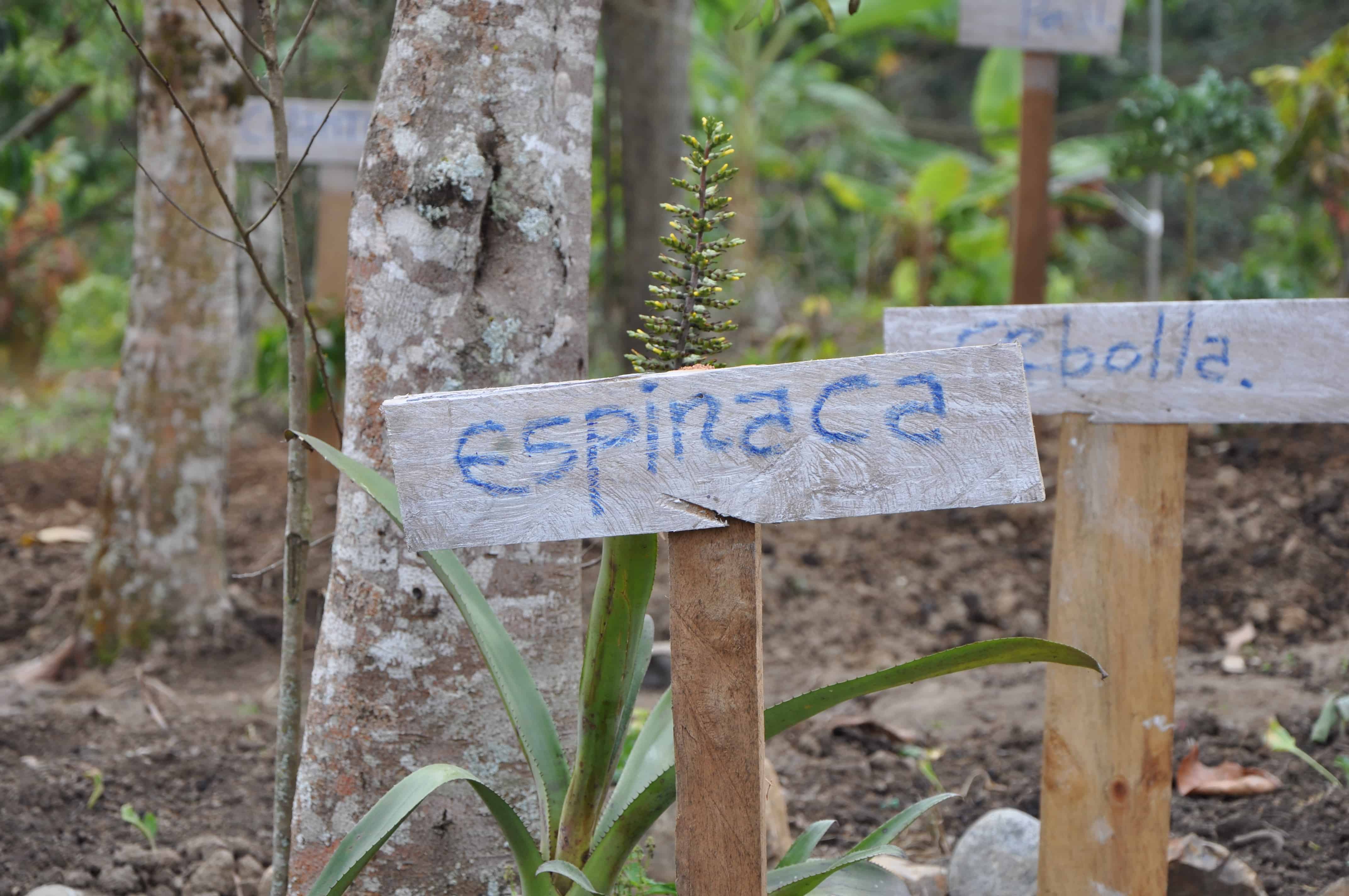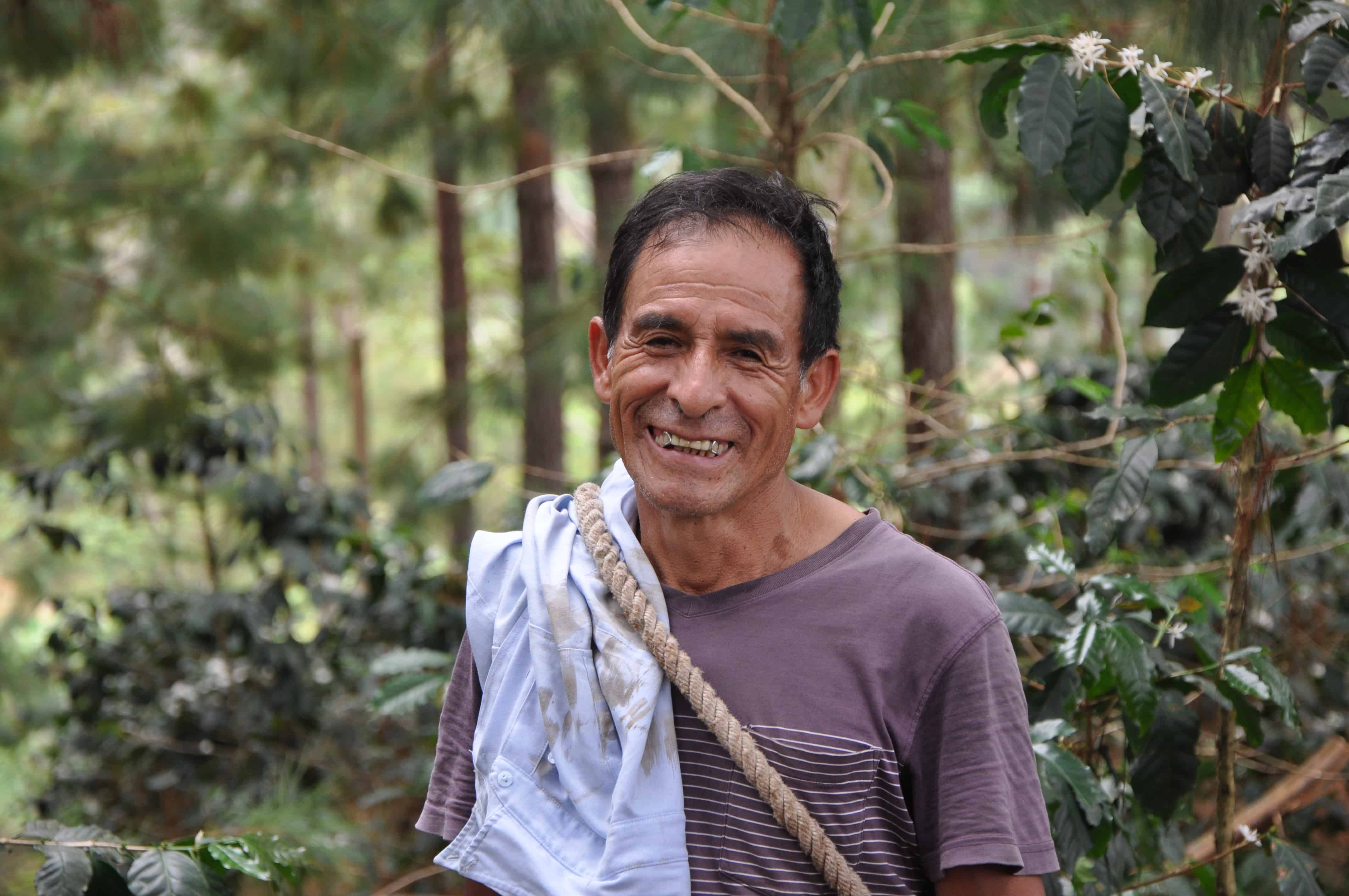Interview with Raúl and Carmen from CAC Pangoa

During my recent visit to San Martín de Pangoa, Peru to launch the Women-led Reforestation Campaign, I got the chance to visit the chakra (meaning farm but specifically a forest-farm system) of Raúl and Carmen Alanya Saramiento. Raúl and Carmen are long time members of the Peruvian Cooperative CAC Pangoa and Raúl is the Chairman of the Board of Directors for Pangoa. Carmen was one of the initial cooperative members to begin reforesting their land in 2008 and growing coffee in an agroforestry, or food-forest, system. They have an impressive 14 acre farm where they grow coffee, cacao, yucca, bananas, and fruit trees. They have a vegetable garden where they grow spinach, onion, zucchini, squash, peppers and herbs and they raise pigs, chickens, guinea pigs, and fish. Last year, their farm has become a ‘Center of Excellence’ for the cooperative, which is a method of farmer-to-farmer training that CAC Pangoa uses where other cooperative members can visit farms that are implementing best practices and see what is working for them and how to translate that to their own farms.
Can you start by telling me a little bit about your history as farmers and your relationship with Cooperativa Pangoa.
Raúl: We became a family in 1994 and when we started working we only had a small plot of land about 1 hectare. With the strength and education of us as a couple we were able to acquire all that we have now. We have always made our goal to be sustainable farmers, to maintain our work within the family and provide for ourselves without depleting the soil and the farm. My dad was a Pangoa cooperative member so in some ways we were always involved with the cooperative but at some point we given the opportunity to become cooperative members ourselves. At this time though the cooperative didn’t feel like it was worth it. Not necessarily a bad thing or a good thing it was just about where the leadership was going. In this regard, we did sign up as cooperative members but after a bit of time we decided to leave the cooperative. But soon we saw the problems with the changes in coffee prices, we realized the the cooperative played an important role as a regulator of prices. We re-signed up as Pangoa cooperative members and from there on out we have never left the cooperative. In fact we just continue to be more involved. CAC Pangoa tries to be a sustainable cooperative, even with all the faults that we have as humans we are always trying to better the conditions for our members. Things don’t just happen on a whim, if something is not working we stop along the path to figure out how and why are we failing. In this regard, for our business to succeed it depends on our quality as people and the ability to not just think of ourselves but think of the community as a whole.
You have an incredible farm, can you tell me about the history and evolution that got you to the 14 hectare farm and Center of Excellence that you are today?
Carmen: It has been a slow process and we really bought and expanded one hectare at a time. When we got married we didn’t have anything but we were given a bit of money and with this we could buy our little farm. We started with planting coffee and investing our income in expanding the farm. We invested in becoming organic and fair trade and fixing our house with a separate bathroom and a clean kitchen and were just made a Center of Excellence last year. Another really important part of our farm is that we create all our own organic compost and fertilizer using organic scraps and waste from the farm. We started doing this when ‘la roya’ or leaf rust started to affect the coffee plants since the organic compost helps the coffee plants to grow and be resilient to disease.
Can you tell me about your family and your kids? Are they going to take over the farm?
Carmen: With our income from selling coffee we were able to educate our kids, but they got it in their heads that farmers suffer and that it is a very difficult life for farmers. None of my kids are farmers, they have other careers but none work on the farm with us. I have four kids, three sons and a daughter and I always try to show that being a farmer is a beautiful life. Of course it is an issue, for us we don’t have anyone to replace us here. Our kids help us out because we are getting older but they have other professions are not interested in taking over the farm.

Raúl: And this isn’t just an issue for us but for the whole cooperative. We know that in the future the cooperative won’t have as many members because the majority of cooperative members are over 60 years old. So we are trying to engage the younger generation, which sometimes doesn’t understand the importance of the cooperative. We know that the time of the adults is already over and that the youth are the present moment and the children are the future of the cooperative. So in many ways we are thinking about how to get them involved in the process, working within the committees with children to demonstrate and teach that farmers play a critical role in the life of humans. You can live without clothes but food and nourishment are the basic principles of life. And it's the same with the environment, for example medicinal plants disappear with the deforestation so we are reinvesting in reforesting the land to protect the environment and our connection to it.

You both sell coffee with Pangoa but what else do you grow on your farm?
Raúl: On the farm we grow coffee, cacao, yucca, bananas and fruit trees. We have a vegetable farm with things like spinach, onion, zucchini, squash, peppers and herbs. We have animals--pigs, chickens, cuy--here and a fish pond that we can sell in the local markets which helps our family income. We don’t only get income from coffee but from bananas, cacao, fish and chicken, which is really important for our financial security.
Carmen: We rarely need to go to the market and buy things really just things like sugar, oil and flour. For everything else, I have my animals that I take care of and my vegetable farm which I plant and harvest all of our vegetables for the house and the family.
I am so impressed with the amount of trees you have planted on your land. What got you started reforesting here?
Carmen: I started reforesting because the cooperative always talks about preparing for our retirement and our future for our kids and so I started to look for trees to plant and pine trees really caught my attention. I started planting about 11 years ago with 300 pine trees and from there selling the seeds of my trees to my neighbors so they could start reforesting themselves. I did not start with the thoughts of having a business of selling my seeds but everyone was interested and now this whole area is reforested with pine trees that come from my seeds.
What does reforestation mean to you, your family and the environment?
Carmen: I see reforestation as our legacy. We leave behind the native trees to protect the coffee, bananas and the yucca. We are also transforming the land, th land is not bare, there are trees and it feels fresh, not like the city where it is hard to breath and the sun burns you.

Do you have any final comments you want to leave for those reading this in the United States and Canada?
Raúl: We need this ability to communicate with people in the United States and around the world that our world and the environment is changing. What are the majority of people doing? Because we are just a few people reinvesting in the planet and trying to fix the damage that has been done but the majority of people are thinking about money and becoming millionaires so they can go to other planets when they deplete this one. But what is going to happen to the poor people who can’t leave, who can’t escape the damage happening to this planet? Our world overnight is changing and here we feel it with the stronger winds, the temperatures are higher, the soil is drying and there isn’t water.
We need to change the attitude of the world and start with the things like planting trees so that our grandchildren and our great grandchildren can have a healthy planet. We need to come together and protect the future.
Interview conducted and translated by Julia Gentner, Grow Ahead Program Manager